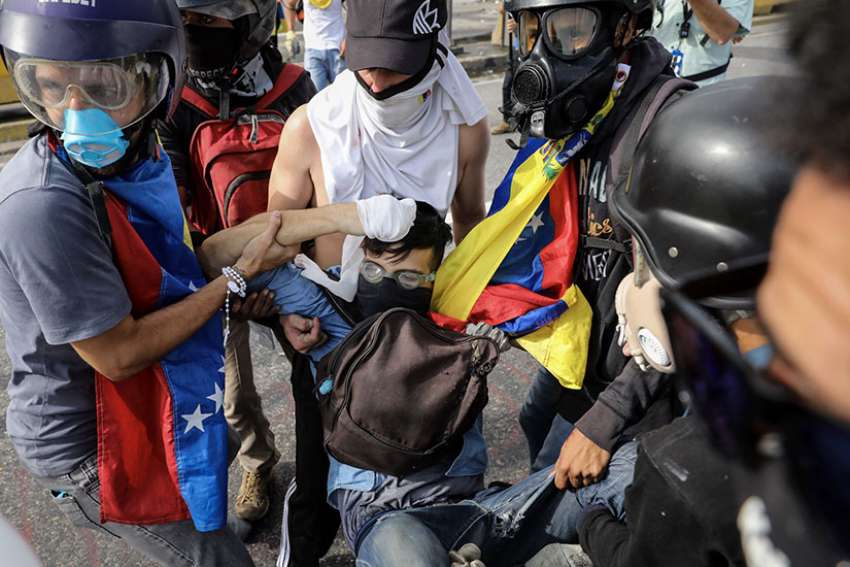The July 16 attack was carried out by armed groups in support of the nation's socialist government.
Venezuela's government plans to hold a constituent assembly which would have the authority to write a new constitution and to dissolve the country's legislature, which is controlled by the opposition.
More than 7.6 million people across Venezuela are believed to have voted against the assembly in Sunday's unofficial referendum, which was organized by the opposition.
The referendum led to violence in several areas across the country.
The Archdiocese of Caracas said the attack with shots fired against those in line to vote is “an unacceptable attack on the people and on Cardinal Urosa.”
After Mass, the cardinal and the priests were told that pro-government groups were harassing those who were participating in the consultation, which was taking place near Our Lady of Mount Carmel parish in Caracas' Catia area.
After the shots that forced several hundred people to enter the church and which left one person dead and several injured, “the violent group continued to harass those who took refuge in the church and the the church doors had to be locked to protect them. The attackers prevented those inside from leaving the parish church.”
The news release by the Archdiocese of Caracas noted that “in view of the seriousness of the situation, the cardinal then called a priest to ask for support from the authorities. For his part, the pastor of the church, Fr. Tovar, spoke with some of those belonging to the group that was outside the church to ask them to end the siege of the people who had taken refuge inside the church. He reiterated to them that the parish facilities had not been provided for the consultation of the people. However, nothing came of it.”
The release of those inside the church occurred after the intervention of the authorities of the National Bolivarian Police, who spoke with Cardinal Urosa in order to evacuate those who were in the church with guarantees for their safety.
The statement also “totally repudiates the attack by armed groups against the citizens who were peacefully participating in the consultation of the people on the Constitutional Assembly, as well as subsequent siege of all the people who were in the parish church.”
The Venezuelan Bishops' Conference posted on Twitter photos of a number of bishops participating in the consultation, including Cardinal Urosa and the conference's president, Archbishop Diego Padrón Sanchez of Cumana, who told CNA that yesterday's consultation was “successful with the massive as well as peaceful and democratic participation of the Venezuelan people,” which wants “peaceful as well as constitutional ways to get out of the crisis.”
The archbishop added that the people do not want a reform of the constitution but “a change in the system that is governing us and which is ultimately the cause of all the ills from which the country is suffering.”
“A change of the system, not just one person for others, but a change of the total system which also includes the person.”
Poor economic policies, including strict price controls, coupled with high inflation rates, have resulted in a severe lack of basic necessities in Venezuela, such as toilet paper, milk, flour, diapers and medicines.
Venezuela's socialist government is widely blamed for the crisis. Since 2003, price controls on some 160 products, including cooking oil, soap and flour, have meant that while they are affordable, they fly off store shelves only to be resold on the black market at much higher rates.


